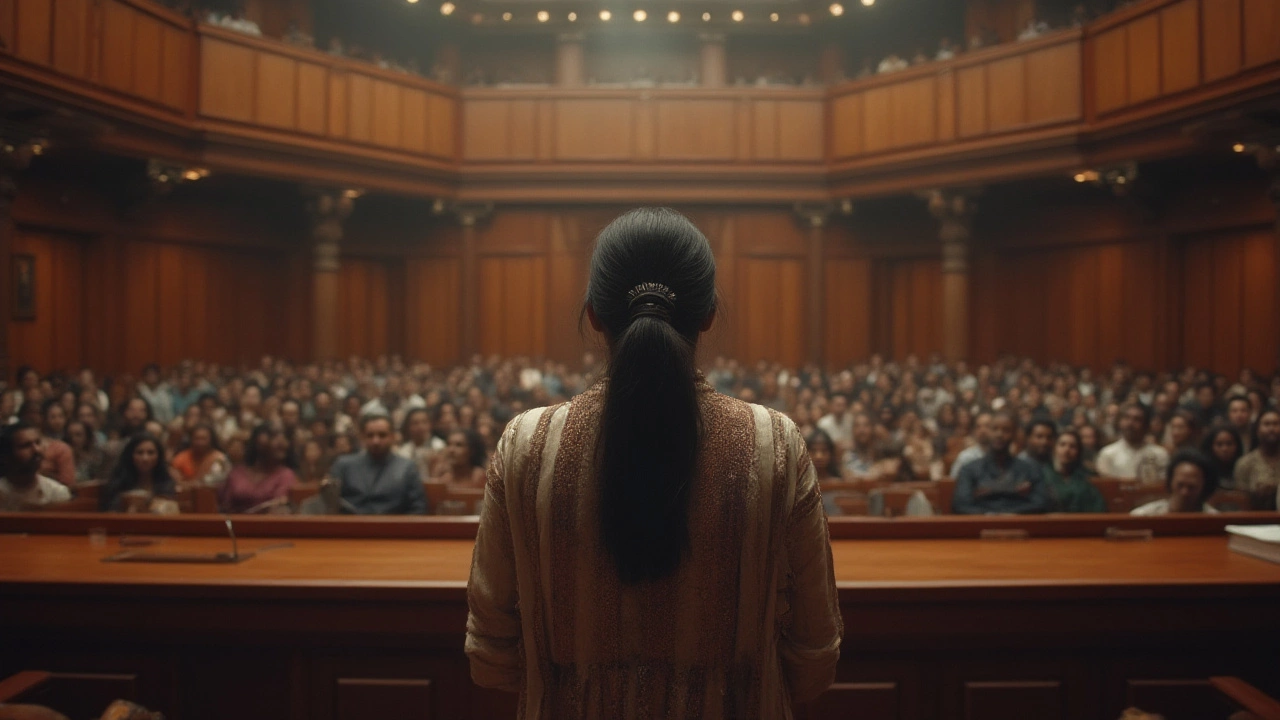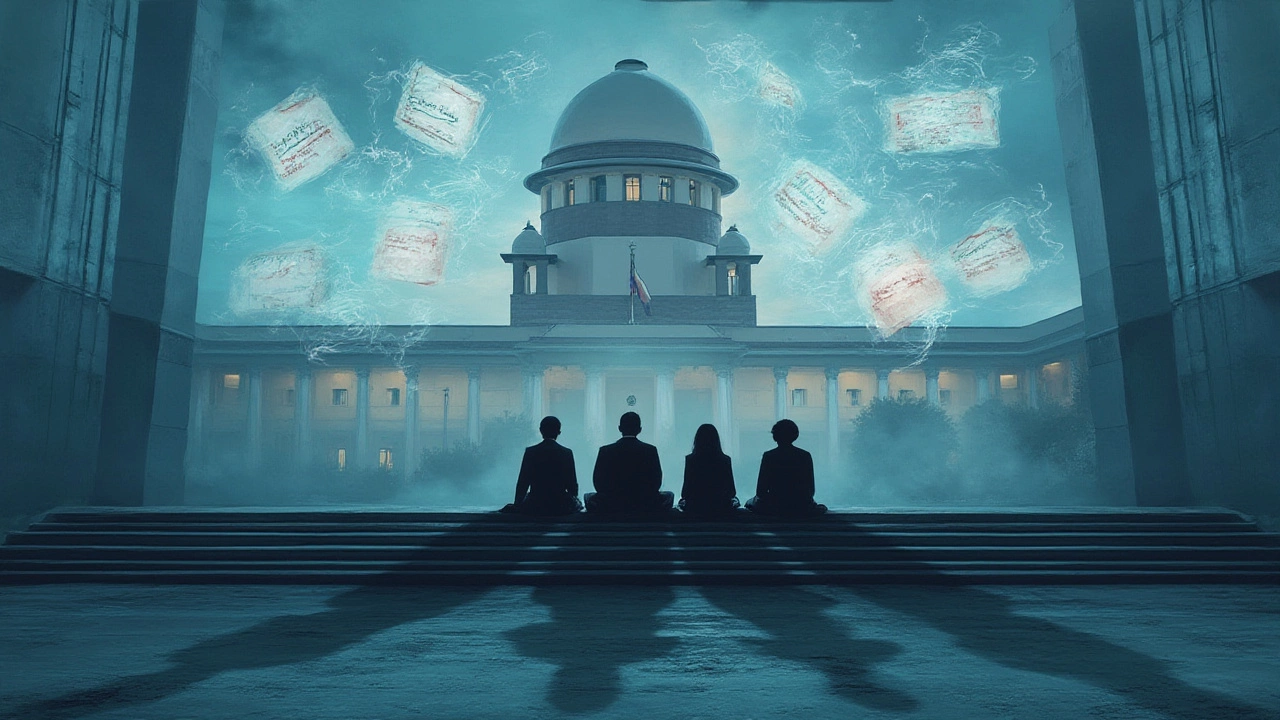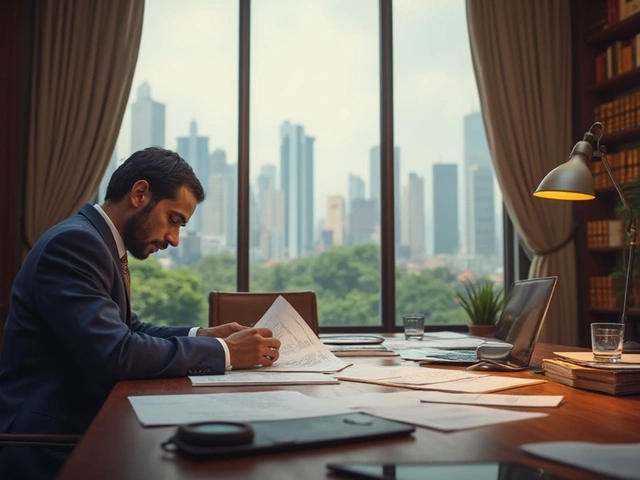Picture this: you see a lawyer walking confidently into a packed courtroom, suit pressed, briefcase closed tight. Looks fearless, right? Here’s the catch—beneath that calm, even the sharpest lawyer’s got a gut full of hidden worries. The law isn’t a playground for the faint-hearted. It’s filled with real people, money on the line, lives sometimes hanging in the balance. The scary truth? Some things can send a shiver down even the boldest lawyer’s spine.
The Nightmare of Making a Critical Mistake
It’s hard to describe the weight lawyers carry over the simplest slip-up. A missed deadline, a misfiled document, or a typo in a contract can explode into lawsuits, ruined careers, or financial disasters. I read about a 2022 Delhi High Court case where a filing typo cost a client a crore—and the lawyer’s reputation. The margin for error in law is basically zero. Unlike forgetting milk at the store, legal mistakes aren’t easy to fix. Law firms require systems like multiple checks, digital reminders, and even old-school post-it notes to fend off disaster, but the anxiety never really goes away.
The American Bar Association’s 2023 report pointed straight at this fear: about 63% of lawyers who faced malpractice claims admitted the root cause was some kind of administrative or deadline blunder. That’s not just a Western thing. Even in my circle, one Mumbai-based friend lost two months’ sleep after noticing a tiny date error buried deep in a property deed. Mistakes don’t just cause financial harm; they cut right into a lawyer’s sense of pride and responsibility.
Why is this fear especially deep? Simple: lawyers are often a client’s last line of defense. One misstep and someone could lose a home, custody of kids, or spend years fighting a pointless legal battle. Pressure doesn’t just come from bosses or courtrooms—it’s the idea that any slip could damage someone’s life.
What helps manage this fear? Double-check lists, collaborative teams, and “buddy systems” that force another set of eyes on every document. Modern law firms often invest in legal tech for reminders and tracking. Still, many lawyers confess to sleepless nights, replaying day’s work in their heads. The fear nags: what if I missed something?
Crossing the Ethical Line (Even Accidentally)
Here’s what really freaks out lawyers: being accused of breaking the rules. Not the rules of cricket or traffic, but rock-solid legal ethics. The code’s strict, the consequences are career-ending. Ever heard of the Bar Council’s blacklist? That’s a list no lawyer wants to end up on, but it happens, sometimes even after an honest mistake or a client’s misunderstanding.
Lawyers are bound by confidentiality, honesty to court, fair dealing with other parties. But life isn’t black and white. Suppose you discover your client’s been hiding the truth—do you turn them in, or risk your own license? Or that legal grey zone where helping a family member seems harmless, and suddenly you’re accused of conflict of interest? A 2023 study in the UK found over 45% of practicing lawyers rank “ethical complaints” as their number one anxiety—beating out money worries and burnout by a mile.
False claims aren’t rare. Once, my friend—let’s call her Sheetal—was dragged in front of her bar association because an unhappy client claimed she gave the wrong advice. Months of stress, piles of paperwork, and her name still shows up on Google next to “complaint,” even after clearing her name. What drives the fear? The system’s slow at giving closure, and reputations take years to build but just one accusation to threaten.
Ethics hotlines, continuing legal education, and regular advice from experienced mentors all help. But—as Aarti always reminds me—gossip spreads fast in legal circles. Even rumors of a misstep can make others back away.

The Constant Pressure to Win
The law’s a competition, and lawyers—from juniors to seniors—are always being judged by their last win or loss. It’s not just about ego; it’s about survival. One loss can make clients pull their business, companies rethink their contracts, or families lose trust. No pressure, right?
Reality check: Law is one place where “second best” doesn’t cut it. If you fight a case and lose, even if you did everything right, there’s a part of you that wonders, “Was that my fault?” The Law Society of India’s 2024 survey showed that 58% of lawyers fear losing cases not just for the immediate impact, but because of the long-term damage to their careers. One senior advocate from Bangalore admitted anonymously, “Winning feels like default. Losing makes you question everything.”
That’s why you see lawyers poring over files at midnight, pulling all-nighters, and networking restlessly. The desire to win—sometimes driven by client pressure—means little rest. Blame is quick to arrive but slow to heal. This fear gets intense around sensitive cases: child custody, murder trials, or big-ticket contract disputes. Media adds fuel; names get printed, wins get celebrated, but losses haunt.
How do lawyers cope? Mentorship from older colleagues, talking to therapists, or just venting to folks at home helps (Aarti sometimes gets to hear my entire closing arguments rehearsed at dinner). Some lawyers even join support groups, knowing only peers understand this stress.
The Unpredictable Courtroom
For all the planning and research, all the late-night drafting, courtrooms love to surprise you. You walk in with a plan, only to find that the opposing counsel has found a fresh piece of evidence or a new precedent that upends your strategy. Judges change. Witnesses backtrack. Tech glitches, adjournments, even bad acoustics can flip the day’s mood.
This unpredictability is a major source of fear. A single, unexpected question from a judge can unravel weeks of preparation. I once saw a seasoned criminal lawyer freeze when a judge quoted an obscure article no one had thought relevant. The American Bar Association’s stress survey in 2024 ranked “unpredictable court outcomes” as the second highest source of lawyer anxiety, just after mistakes.
Then there’s public speaking anxiety—more common than you’d think. Some lawyers have recurring nightmares about forgetting their arguments mid-speech. The stress isn’t just about looking foolish, but about failing a client or missing a crucial legal point that could swing the entire verdict.
Preparation helps, but the best lawyers also develop improvisation skills—being nimble, calm, and ready to pivot on the spot. Recalling an embarrassing courtroom moment is almost a rite of passage. Some experienced litigators even revisit tough cases to analyze what went wrong, all to tackle that lurking “what if?” in their next battle.
Ever wondered how many lawyers say a prayer before a hearing? More than you might guess.

The Impact of Mental Burnout and Isolation
People picture lawyers as busy, smart professionals with packed calendars and buzzing phones. But beneath this, there’s a heavy cloud of burnout and loneliness that scares many in the field. The long hours, endless paperwork, demanding clients, and emotional toll—especially in family, criminal, or personal injury cases—leave little room for rest, fun, or, frankly, a personal life.
Recent surveys like the 2024 Indian National Lawyers Study show 41% of lawyers have considered leaving the profession due to exhaustion or mental health issues. Sleep problems, anxiety, and depression are common, but few talk about it openly. Isolation is real. While lawyers meet hundreds of people, genuine connection is tough. Many fear confessing burnout might make them seem weak or less competent in front of colleagues or clients.
This isolation isn’t just a soft, psychological worry. Physical health suffers: headaches, stomach issues, weakened immunity. Divorce rates among lawyers are above the national average in several countries, largely due to unrelenting work pressure. I know lawyers who haven’t taken a real holiday in years—they fear missing a deadline more than missing their cousin’s wedding.
Small steps can make a big difference. Law offices are starting to build wellness programs, offer counseling, or encourage regular breaks and boundaries. Trusted peer groups, hobbies outside work, or even just honest chats with family (like Aarti and I do on Sunday afternoons) can ease the load. It takes guts for lawyers to admit they’re scared, tired, or need help, but it’s happening more often now than ever before. And maybe, just maybe, that’s the bravest thing a lawyer can do.
| Major Lawyer Fear | Percentage of Lawyers Affected (2024 survey) |
|---|---|
| Mistakes Leading to Malpractice | 63% |
| Ethics Complaints | 45% |
| Losing Important Cases | 58% |
| Unpredictable Courtroom Outcomes | 49% |
| Mental Burnout / Isolation | 41% |


